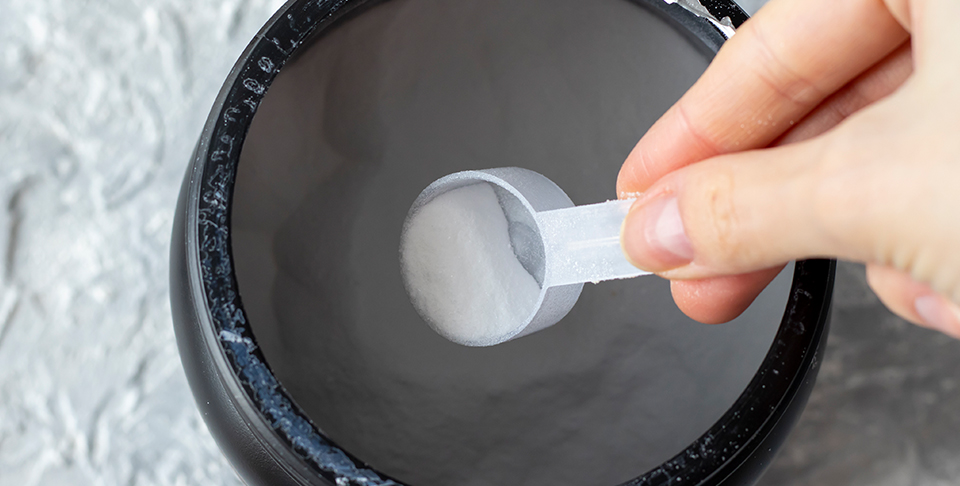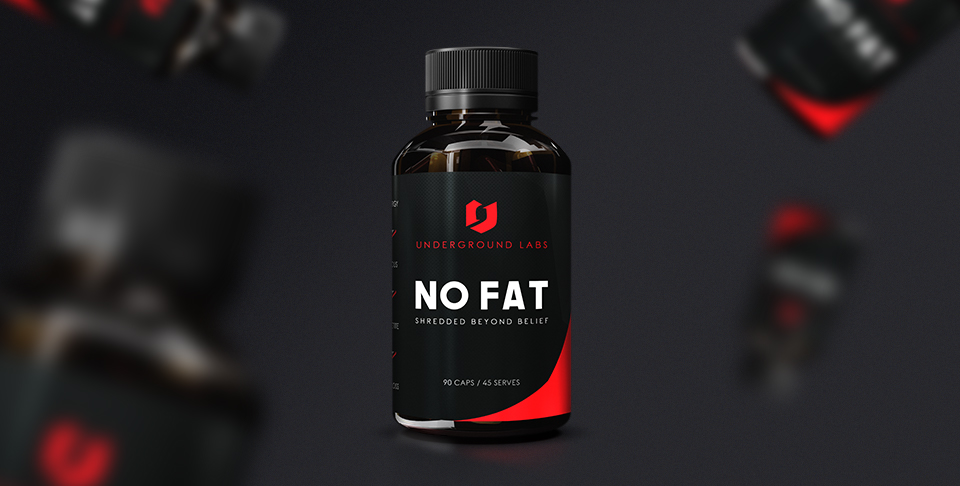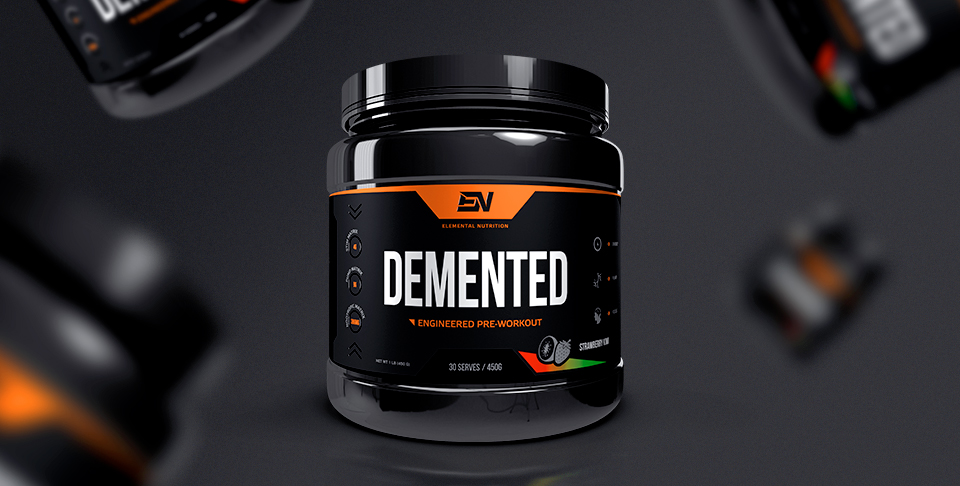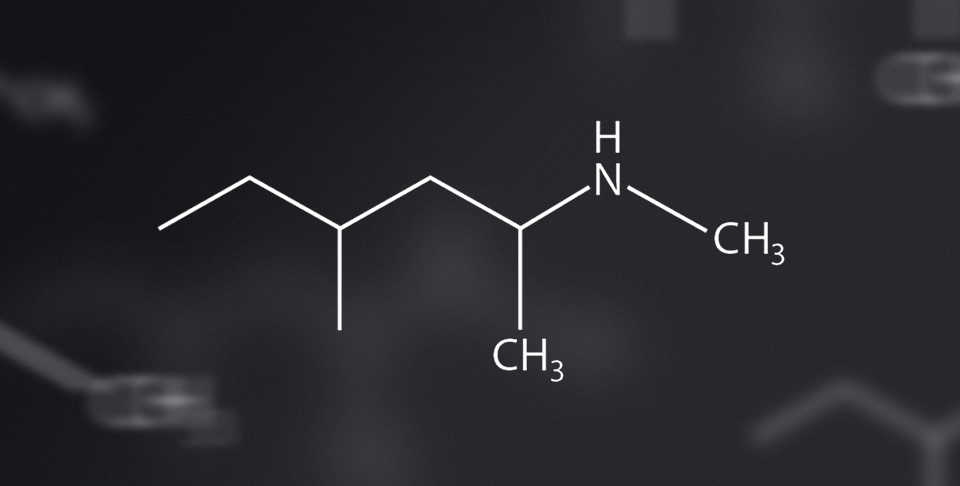Quick DMAA Alternatives Summary Points
- DMAA or 1,3 dimethylamylamine is a central nervous system stimulant that was commonly found in concentrated pre-workouts and fat burners.
- The Australian Therapeutic Goods Australia (TGA) has banned DMAA since August 2012.
- There are DMAA alternatives that trainers can use that are safe, legal and work.
- Other alternatives include stimulants like caffeine, phenylethylamine (PES) and other ingredients listed in this article.
- The best practice when seeking a DMAA alternative may be to use formulations containing multiple synergistic ingredients, similar to DMAA yet legal and obtainable.
Since 2006, DMAA (1,3 dimethylamylamine) fought its way up the list of ingredients to become one of the most popular ingredients included in bodybuilding and sports supplements. DMAA is an effective central nervous system stimulant, and as such, it was commonly included in concentrated pre-workout supplements and fat burners, However, its success was short-lived before it was banned by many countries including the USA, New Zealand, Canada, and since August 2012, the Australian TGA has also prohibited the sale of DMAA products in Australia. The reason for this ban as stated by the TGA is that DMAA may be abused by certain individuals, resulting in adverse health effects (TGA, 2012).
Underground Labs No Fat is a powerful fat burner that is free from DMAA yet contains powerful synergistic ingredients. This product offers results that some say are comparable to the ingredient DMAA, making it a suitable alternative for those who are looking for a safer, legal and effective fat burner. Whether you are looking to lose weight, increase energy, or boost your overall health, Underground Labs No Fat can help you achieve your goals with its unique blend of powerful and natural ingredients.
DMAA being banned in Australia was bad news for the large following of DMAA fans, many of whom have sworn by the efficacy of the compound in boosting their training intensity and weight loss. But fret not, alternatives are already available and it is highly likely that novel alternatives are being developed right this moment. At the time of writing this article, major supplement manufacturers are developing new ingredients to take the place of DMAA. It is of course impossible to speculate exactly what's been developed at this moment since it some companies keep this a closely guarded secret. However looking at existing DMAA-free supplements, we can make some suggestions about good alternatives to DMAA.
Elemental Nutrition Demented is a pre-workout supplement that provides real results without the use of DMAA. It is a legal alternative that offers a powerful boost of energy, focus, and endurance, making it an excellent option for athletes and fitness enthusiasts looking for a pre-workout that delivers results without compromising on safety.
Caffeine
Caffeine is the most obvious alternative to DMAA. It is the gold standard for stimulants and ergogenic ingredients used in pre-workout supplements. Pretty much every stimulant-based pre-workout contains caffeine in one form or another, and there's a good reason for this. Caffeine is an extremely well-studied ingredient that has strong scientific backing for its use in sports and bodybuilding. There is evidence to suggest that caffeine has benefits for mental performance, endurance, strength, recovery, and fat loss. All of this has been outlined in detail in our Caffeine article. Stimulants can come and go over time, but in this writer's opinion, caffeine is not going anywhere anytime soon.
 Citrus Aurantium
Citrus Aurantium
Citrus aurantium or 'bitter orange" contains many active ingredients, one of which is synephrine. When ingested, it exhibits a stimulatory effect similar to adrenalin, causing an increase in heart rate and blood pressure (Bui et al, 2006). Citrus aurantium is already being used as a possible replacement for the banned substance ephedra. However, it may also be filling the shoes of DMAA. Citrus aurantium is already used in many, high stimulant pre-workout supplements, as well as fat burners.
Combining this with caffeine may make a potent combination, and may be the new "must-have" ingredient.
Phenylethylamine
Phenylethylamine (PEA) is a neurotransmitter also with stimulating effects. It has amphetamine-like effects in its ability to cause the release of noradrenalin (Parker & Cubeddu, 1988) and dopamine (Paterson, 1993). Noradrenalin is a potent stimulating hormone that increases heart rate and blood pressure. Unfortunately, without the aid of prescription drugs, phenylethylamine is rapidly broken down in the body, and its effects are short-lived.
Hordenine
Hordenine is another naturally occurring stimulant found in barley and Citrus aurantium. Much like PEA, hordenine has the ability to increase noradrenalin levels after ingestion (Bloomer et al, 2009). However, unlike PEA, its effects are much longer lived, reaching a peak at 90 minutes.
Methyltyramine
Methyltyramine, N-methyltyramine, or NMT is another ingredient isolated from barley and other plants and is already used in a few very popular concentrated pre-workout supplements. It has been found to have adrenalin-like effects and results in an increase in blood pressure (Hartung, 1945). At this stage, There are conflicting opinions regarding the use of N-methyltyramine, but it is one of the top contenders expected to be the heir to the DMAA throne.
Theobromine
Theobromine is a caffeine-like substance found in cocoa. Theobromine has some properties similar to caffeine, but it does not stimulate the central nervous system to the same extent. However, it is possible that theobromine is an effective vasodilator (Dock et al, 1926), capable of increasing exercise intensity.
Replacement DMAA Formulations & Supplements
Although methyltyramine is expected to be a likely DMAA replacement, by itself it does not carry the benefits or potency of DMAA. However, when combined with other ingredients including phenylethylamine HCL and methyl synephrine HCL, methylamine may work in synergy to produce extraordinary results similar to, and even in excess of DMAA. Be sure to watch for N-methyltyramine-based formulations in forthcoming concentrated pre-workout and fat-loss supplements.
As you can see, many viable DMAA alternatives are already on the market and in the pipeline. So worry not, keep an eye on this space and stay tuned.
DMAA Alternatives Update
Since the writing of this article, there have been more DMAA alternatives that are somewhat similar to the banned DMAA.
Some of these include Teacrine™ (Theacrine) and Dynamine™ (Methyl Liberine), NeuroFactor® & EnXtra®.
Theacrine is an alkaloid structurally similar to caffeine and is produced from the caffeine in certain plants like Kucha Tea. Likewise, Dynamine is also a pure alkaloid that functions to boost energy and focus and is molecularly similar to Teacrine (unfortunately, Dynamine™ also has become banned in Australia).
NeuroFactor®, is an ingredient that has been gaining popularity in the health and wellness world. It comes from the Coffea Arabica plant and has been shown to have some amazing benefits for the brain. The way it works is by increasing the levels of a protein called BDNF (Brain-Derived Neurotrophic Factor) which is crucial for healthy brain function and the growth of new neurons.
Then further there is EnXtra®, a natural ingredient from the Pinus Sylvestris tree used to boost focus, alertness, and cognitive function. It works by increasing noradrenaline levels to reduce fatigue, improve physical performance, and enhance mood.
As one may see from the above, the development of new stimulant-type ingredients has, and shall in all likelihood continue.
What is the Best DMAA Alternative
When it comes to finding a DMAA alternative, it's all about personal preference and what's available in your area. Due to regulatory reasons, DMAA is not available in many countries, so people have been searching for alternatives that can provide similar effects. Unfortunately, there's no one ingredient that can replace DMAA completely, but combining a few different stimulants can be a great option. This can come in the form of a pre-workout supplement or a fat burner to give you an extra boost of energy and focus, as well as help with weight loss.
Some ingredients that you might find in these types of supplements include Caffeine, Citrus Aurantium, Hordenine, Teacrine™, Theobromine, NeuroFactor®, EnXtra®, Cayenne Pepper and more. Each of these ingredients has its own unique effects on energy, mood, and cognitive function, and by combining them, you can get a range of benefits.
Bui et al (2006), Blood Pressure and Heart Rate Effects Following a Single Dose of Bitter Orange. Ann Pharmacother, 40: 53-57
Physiological and pharmacokinetic effects of oral 1,3-dimethylamylamine administration in men Brian K Schilling, corresponding author Kelley G Hammond,1 Richard J Bloomer,1 Chaela S Presley,2 and Charles R Yates
2 Bloomer et al (2009), Dietary supplement increases plasma norepinephrine, lipolysis, and metabolic rate in resistance-trained men. Journal of the International Society of Sports Nutrition, 6 (online)
Dock et al (1926), The use of theobromine for the pain of arteriosclerotic origin. California and Western Medicine, 26: 636-637
Hartung (1945), Beta-Phenethylamine Derivatives. Ind. Eng. Chem, 37: 126-137
Parker & Cubeddu (1988), Comparative effects of amphetamine, phenylethylamine and related drugs on dopamine efflux, dopamine uptake and mazindol binding. JPET, 245: 199-210
Paterson (1993), The potentiation of cortical neuron responses to noradrenaline by 2-phenylethylamine is independent of endogenous noradrenaline. Neurochemical Research, 18: 1329-1336
TGA (2012), Reasons for scheduling delegates' interim decisions & invitation for further comment, July 2012. Department of Health and Ageing, Australian Government



